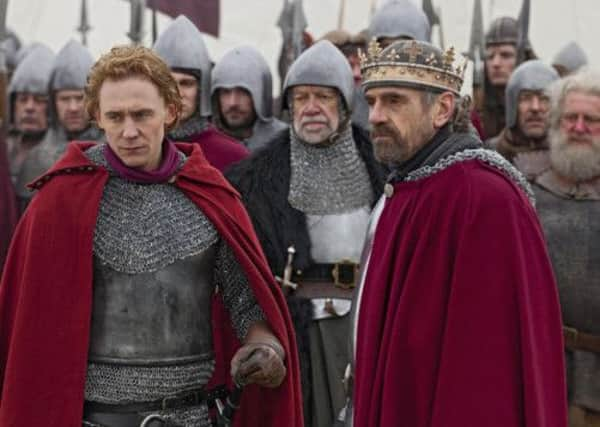Jayne Dowle: Battle lines drawn over plan to ditch Bard’s dull bits and cut the action


Inevitably, the traditionalists are huffing and puffing and accusing her of dumbing down. They might like to remind themselves that Shakespeare did a great deal of dumbing down too, taking existing plays, bits of history, classical stories and folk tales and mashing them all up into entertainment. He didn’t write his works to be read as narratives from text books, he wrote them to be performed. And presumably, he wrote them with the understanding that they could be interpreted in myriad ways; churning out script after script, he didn’t have time to agonise too much about what were essentially, the soap operas of their day.
Let’s get some context here then. Does it really matter if we start in the middle? Does it really matter where we start, as long as a start is made and an interest in one of our greatest writers is sparked? I doubt that those critics have ever had to teach Macbeth to a bunch of uninterested and quite possibly dysfunctional 14-year-olds.
Advertisement
Hide AdAdvertisement
Hide AdIf they had, they would understand that a dedicated teacher is prepared to pull every trick at their disposal to get across the beauty and power of the drama.
Talk about respect. I have so much for the teacher who faced this challenge at my comprehensive school. Not only was this poor woman far too nice for her own good, she had to teach Shakespeare to us lot. The lads would be shouting and throwing paper aeroplanes and the girls doing their eyeliner and writing “I love Steve 4eva” on their exercise books, but on she soldiered, making us read out lines, and act them out, until eventually around three-quarters of us staggered to a pass in our English literature O-Level.
I wonder what she thinks of Dr Bousted’s comments. Indeed, if she is still teaching, I wonder how she copes with today’s generations, raised on the instant gratifications of video games, YouTube, Facebook and TV-on-demand and blessed with the attention spans of very, very tiny gnats. I bet she would welcome being able to drop the preamble and cut to the chase.
Dr Bousted even says that the best bits should be presented “like a film trailer”.
Advertisement
Hide AdAdvertisement
Hide AdAll that huffing and puffing from the traditionalists does them no favours and actually, shows just out of touch they really are. The Hollow Crown, the BBC’s acclaimed recent dramatisation of the history plays, might not have pulled in millions of viewers, scheduled as it was on Saturdays over the summer, but it certainly impressed my son Jack.
Wandering through the living room on his way to the PlayStation one evening, his attention was caught so much that he actually sat down.
This being his first acquaintance with Shakespeare, I wasn’t sure how he would react, but he turned to me and grinned; “Wow mam, it’s amazing. They talk just like us!” And this from a child who has struggled with literacy since he started primary school.
I found out later that the costume designer for the series had used the tribal colours of football fans as her inspiration, and this passion certainly came across on screen. Was it a classical interpretation? Was it respectful? Probably not, but when no-one really knows where a line should be drawn, it makes the arguments of those who scoff at Dr Bousted spurious at best.
Advertisement
Hide AdAdvertisement
Hide AdAnyway, in my book, anything which makes our historical sacred cows more accessible to ordinary children has got to be a good thing, which is why English Heritage’s promise to pay for the cost of taking youngsters to historic sites each year from its donations and legacies fund is also such welcome news.
The History Bus scheme will cover the cost of around 7,500 coaches, opening up vistas of our heritage to many school pupils who previously might not have been able to afford to get on board; attractions include Hadrian’s Wall, the Battle of Hastings battlefield and Whitby Abbey.
No doubt some of those critics having a go at Mary Bousted’s revolutionary ideas will huff and puff at this too and splutter that the last thing these venerable sites need are even more schoolchildren clambering all over them and making noise.
They must remember though that history is a living, interactive thing, and that only by passing on a love and understanding of the past to today’s children will future interest be created.
Sometimes, as Shakespeare himself understood, you’ve got to break a few rules, so I say all power to those brave enough to stick their heads above the parapet.